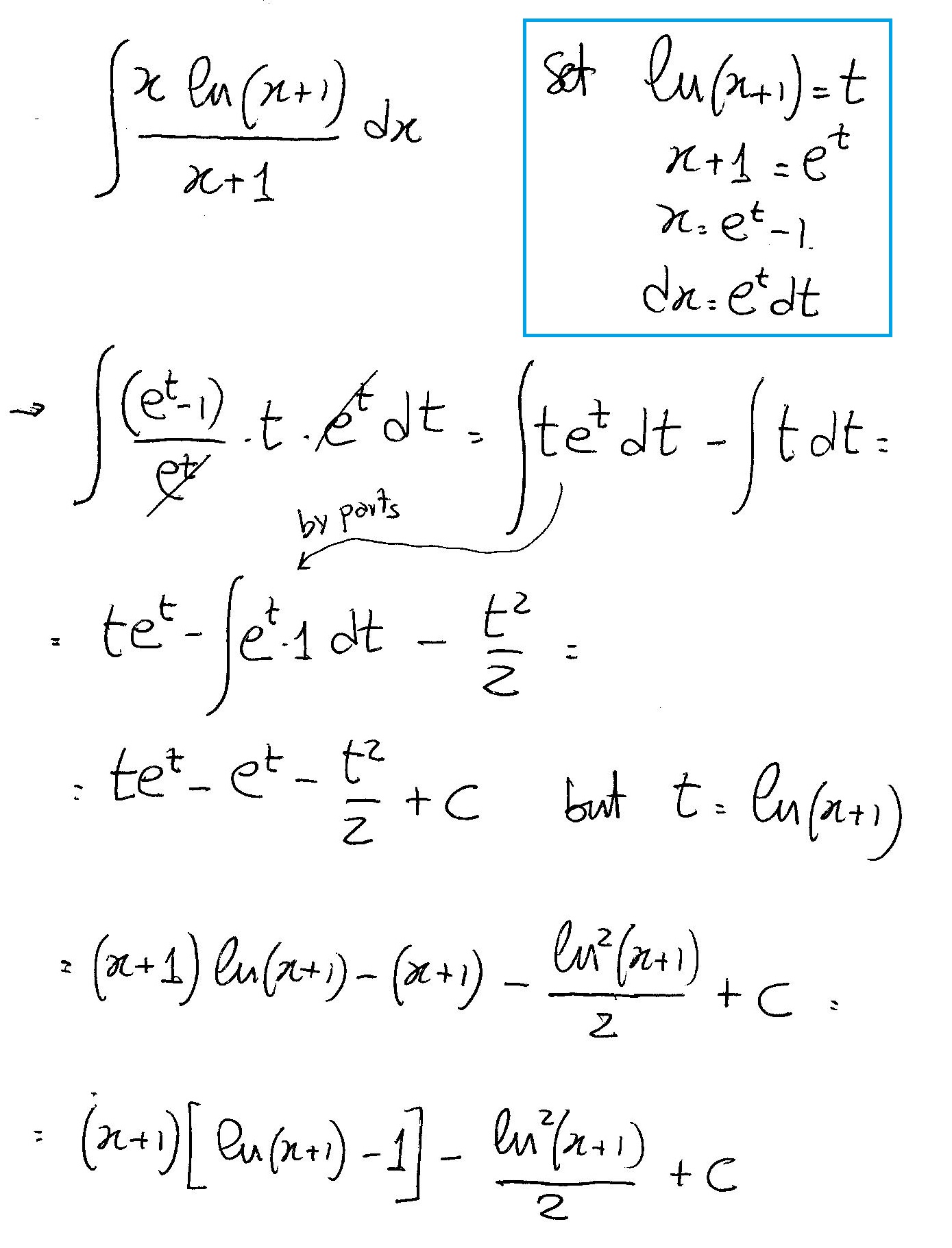Can you evaluate #int \ (xln(x+1))/(x+1) \ dx #?
2 Answers
I tried this:
Explanation:
Have a look:

# int \ (xln(x+1))/(x+1) \ dx = (x+1)ln(x+1) - x - 1/2 ln^2(x+1) + C #
Explanation:
Yes I can!
We want to find:
# I = int \ (xln(x+1))/(x+1) \ dx #
An obvious logical substitution would be:
Let
#w=x+1 = > (dw)/dx = 1# , and#x=w=1#
Substituting into the integral gives us:
# I = int \ ((w-1)lnw)/w \ dw #
# \ \ = int \ (w lnw - ln w)/w \ dw #
# \ \ = int \ lnw - ln w/w \ dw #
# \ \ = int \ lnw \ dw - int \ ln w/w \ dw #
The first integral is a well known result and one that probably should be memorised. It can be derived using Integration by parts:
Let
# { (u,=lnw, => , (du)/(dw)=1/w), ((dv)/(dw),=1, =>, v=w ) :}#
Then plugging into the IBP formula:
# int \ (u)((dv)/dx) \ dx = (u)(v) - int \ (v)((du)/dx) \ dx #
gives us:
# int \ (lnw)(1) \ dw = (lnw)(w) - int \ (w)(1/1) \ dw #
# :. int \ lnw \ dw = wlnw - int \ dw #
# :. " " = wlnw - w #
And for the second integral we can perform another substitution:
Let
#z=lnw => (dz)/(dw) = 1/w#
Substituting into the second integral gives us:
# int \ ln w/w \ dw = int \ z \ dz #
# " " = 1/2z^2 #
And restoring the substitution for
# int \ ln w/w \ dw = 1/2 (lnw)^2 #
Combining these two results then gives us:
# I = {wlnw - w} - {1/2 (lnw)^2} + C_1 #
And restoring the substitution for
# I = (x+1)ln(x+1) - (x+1) - 1/2 ln^2(x+1) + C_1 #
# \ \ = (x+1)ln(x+1) - x-1 - 1/2 ln^2(x+1) + C_1 #
# \ \ = (x+1)ln(x+1) - x - 1/2 ln^2(x+1) + C #


